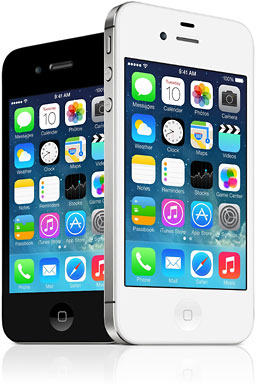When you buy the latest and greatest, you expect it to last. Here at Low End Mac, we know that even the best of the best eventually becomes low-end. It appears, however, that some folks out there didn’t get that memo.
 Yesterday, a gentleman by the name of Chaim Lerman filed a Class Action Lawsuit seeking US$5 Million in damages for “deceptive trade practices and false advertising”. Plaintiff Chaim claims that he and other iPhone 4S owners became unable to use their devices because the iOS 9 update slowed down their devices.
Yesterday, a gentleman by the name of Chaim Lerman filed a Class Action Lawsuit seeking US$5 Million in damages for “deceptive trade practices and false advertising”. Plaintiff Chaim claims that he and other iPhone 4S owners became unable to use their devices because the iOS 9 update slowed down their devices.
The iPhone 4S was originally introduced in September of 2011, the day before Steve Jobs died. This makes the iPhone 4S nearly 4-1/2 years old. It originally shipped with iOS 5 and has received four major iOS updates. This mean it has received more updates than any other iPhone. Four-and-a-half years and four major OS updates is huge in the tech industry these days, and it is unheard of in the rest of the mobile device industry.
The problem of “forced obsolescence” is as old as the tech industry itself. Everybody reading this article has felt the sting of buying something new only to have it replaced months, weeks, or even days later. While your new device may not be rendered useless as soon as the next one comes out, it is inevitable that it will eventually become “obsolete”.*
So here we are. Apple is faced with yet another Class Action suit. I think that the Plaintiff in this case is grasping at straws with his lawsuit. I have an iPhone 4S and an iPhone 6, and while my 4S isn’t as lively as my 6, it is perfectly functional running iOS 9.
Listen, folks, you have to come to terms with the fact that older devices simply won’t run the latest and greatest as well as newer devices will.
To give you some perspective, the iPhone 4S has a 32-bit processor and gets a Geekbench 3 score of about 410. The iPhone 6S has a 64-bit processor and gets a Geekbench score of 4365. That is well over 10x the power of the iPhone 4S.
Apple has gone out on a limb by supporting the iPhone 4S as long as it has, and I personally applaud them for keeping it up to date. But there are those out there who have unrealistic expectations about how well their older devices should perform with the ever increasing demands of modern software. Because of this lawsuit, I wouldn’t be surprised if Apple simply decides to stop providing updates for discontinued models at all.
I do have an alternative solution for Apple that hopefully will make some of these disgruntled users happier – allow users to downgrade their devices to whatever iOS they prefer under the condition that the user understands that Apple will not provide support for their device and that new apps may not be compatible with the older OS.
With any luck Apple will like the idea of letting users choose what OS to run, and almost everyone will be happy with their devices again.
* Obsolete has several different meanings. It can mean something is no longer being produced, is outdated, is no longer supported, is no longer useful, or is no longer being used. Apple tends to use the word in the sense of ongoing support. At Low End Mac, we tend to use the last two definitions – something no longer useful or no longer in use – and few Macs truly meet that definition. I use an iPhone 4S with iOS 9 daily, and I would never say that I am unable to use it because it’s sometimes quite slow. It is very usable, and while I would love to migrate to an iPhone 6 (or at least a 5S), that appears to be somewhere down the road. Dan Knight, publisher, Low End Mac
Keywords: #obsolete #classactionlawsuit
Short link: http://goo.gl/snCbMh
searchword: classactionlawsuit

